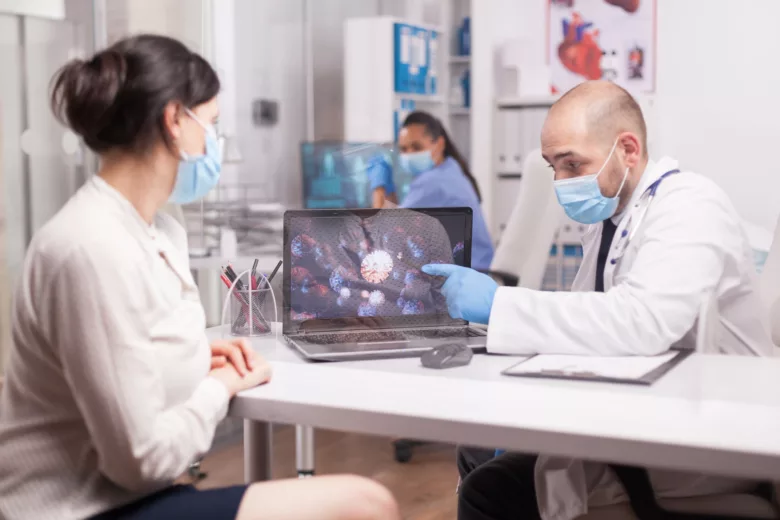How to Protect Yourself & Others From COVID-19?
Protection
PROTECT YOURSELF FROM COVID-19
Prevention is better than cure, and COVID-19 is no exception. People who are not fully vaccinated, those with underlying medical conditions or a compromised immune system, and children under 12 should continue taking COVID-19 preventive measures. If you believe that you are experiencing COVID-19 symptoms, isolate yourself until confirmed by a test.

Wear a Mask
- The CDC recommends unvaccinated people and those aged two or older to wear a mask in indoor public places, crowded outdoor settings, areas with high numbers of COVID-19 cases, and close-contact activities.
- For protection against the delta variant, the CDC prescribes that fully vaccinated people wear a mask in indoor public places or areas of high transmission.
- People with a compromised immune system or an underlying medical condition should wear a well-fitted mask and continue taking all precautions laid down for unvaccinated individuals.
- Wearing a mask covering the nose and mouth is a mandatory requirement at airports, stations, and while on buses, planes, trains, and other forms of public transportation.
Avoid Poorly Ventilated and Crowded Places
- Avoid indoor settings that do not have proper ventilation. If possible, open doors and windows to let in fresh air.
- Crowded places such as restaurants, bars, movie theatres, or gyms increase the risk of transmission of the virus. Avoid crowded settings as much as possible.
Maintain social distancing
- When indoors, maintain a distance of at least 6 feet (about two arm’s length) from any sick person or anyone who has been tested positive for COVID-19.
- When outdoors, maintain a distance of at least 6 feet between you and anyone who does not live in your home.
- Keeping distance is mandatory, primarily due to the prevalence of asymptomatic patients or if you are at a higher risk of contracting the virus.
Wash your hands frequently
- Wash your hands with soap and water for at least 20 seconds after blowing your nose, coughing, sneezing, before touching or food, before preparing or eating food, after leaving a public place, after using the restroom, after changing a diaper, after handling your mask, after touching animals or pets, and after caring for someone sick.
- Avoid touching your mouth, eyes, and nose with unwashed hands.
- Use a hand sanitizer with at least 60% alcohol content if soap and water are not readily available.
Cover your coughs and sneezes
- If you are not wearing a mask, cover your coughs and sneezes with a tissue or use the inside of your elbow. Do not spit, and dispose of the tissue into a lined trash can.
- Wash your hands for at least 20 seconds immediately after a cough or sneeze. Use soap and water for washing and if not available, use a hand sanitizer with at least 60% alcohol content.
- You can cough or sneeze into your mask if you are wearing one. Dispose of the soiled mask, put on a new, clean one, and wash your hands.
Clean and disinfect high-touch surfaces
- Use detergent followed by a household disinfectant to clean frequently touched surfaces like light switches, doorknobs, desks, handles, countertops, phones, keyboards, faucets, sinks, and toilets.
Get vaccinated and monitor your health daily
- Get an authorized COVID-19 vaccine as soon as you can.
- Monitor your health daily and be alert for symptoms. Watch out for symptoms like cough, fever, shortness of breath, or other COVID-19 symptoms, especially if you are going to your workplace, running errands, or in settings where physical distancing is not possible.
ARE YOU AFFECTED BY COVID-19?
Stay Safe
BE INFORMED ABOUT COVID-19
If you believe you have COVID-19 symptoms, conduct a test to confirm.
- Headache & Sore Throat
- Fever
- Shaking Chills
- Shortness of Breath
- Diarrhea
- Cough